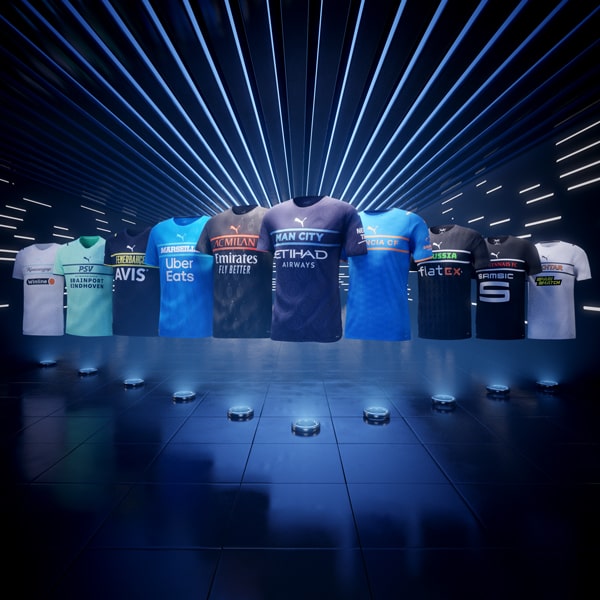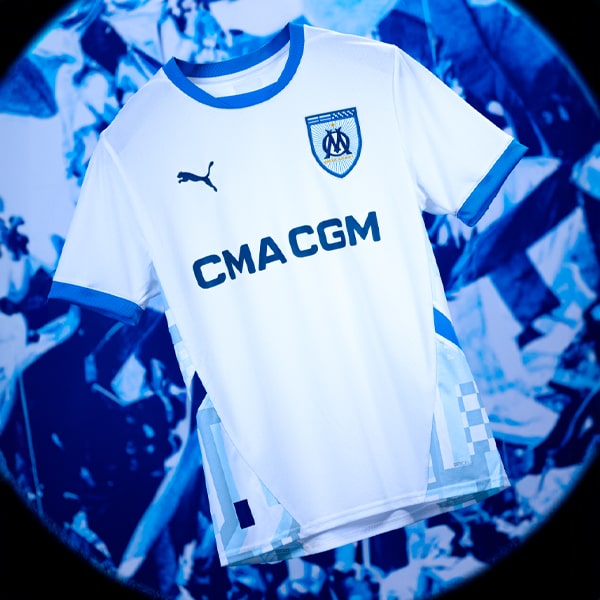Continuing the quest for sustainability in an effort to save our planet, PUMA is trialling a new initiative called RE:JERSEY, which will see the brand pilot an innovative production process to use existing football jerseys to produce new ones.
Over the last few years we’ve seen an improvement in the way products are produced by sporting brands, with a notable new production process seeing plastic waste from the oceans used to create club shirts. Now PUMA are taking the next step in this process by launching a jersey recycling scheme. The products made in the RE:JERSEY project will be worn by PUMA Clubs Manchester City, AC Milan, Borussia Dortmund and Olympique de Marseille ahead of their respective league fixtures in late April and May, starting with Manchester City against Watford on 23 April.
In the recycling process used for the RE:JERSEY project, the garments are chemically broken down into their main components (depolymerisation). Colours are then filtered out and the material is chemically put back together to create a yarn (repolymerisation) that has the same performance characteristics as virgin polyester. This process means that old garments that feature logos, embroideries and club badges, which previously hindered recycling efforts to turn old garments into new ones, can now be used.
Sure, there's nothing exciting from an aesthetic design point of view here, and there's inevitably going to be some backlash on a level with the brand's radical third shirts from this season, but the bigger picture is what's important, and this is a huge step forward from an environmental perspective. While PUMA’s football kits on the market today are already made from 100 percent recycled polyester, RE:JERSEY kits are made with 75 percent repurposed football jerseys. The remaining 25 percent comes from SEAQUAL MARINE PLASTIC.
“With the RE:JERSEY project, we wanted to develop ways to reduce our environmental impact, respect resources and reuse materials,” said Howard Williams, Director Apparel Technology at PUMA. “The insights we gained with RE:JERSEY will help us develop more circular products in the future."
For more on PUMA's quest for sustainability, check out the 'First Mile' boot pack they created recently.












